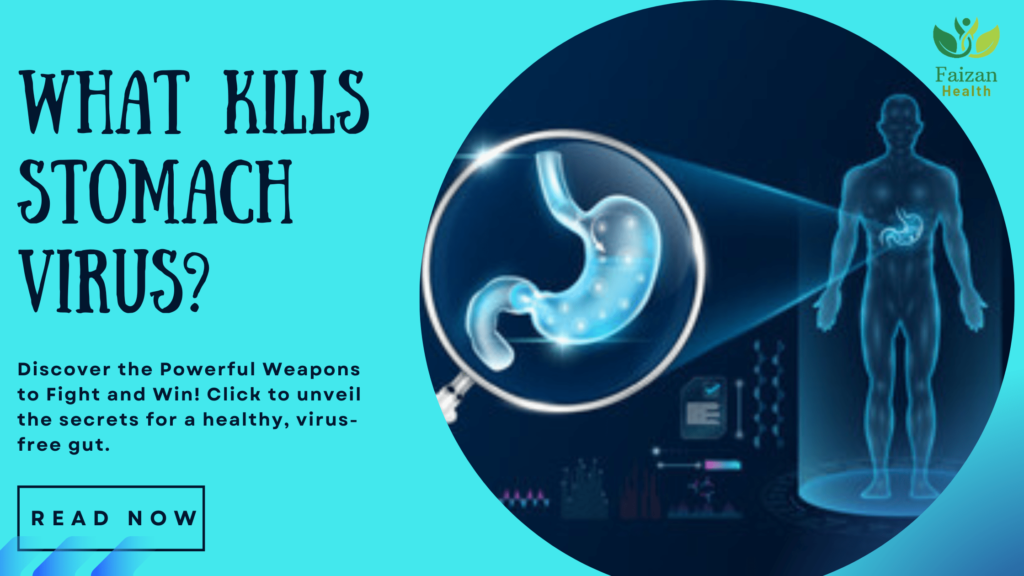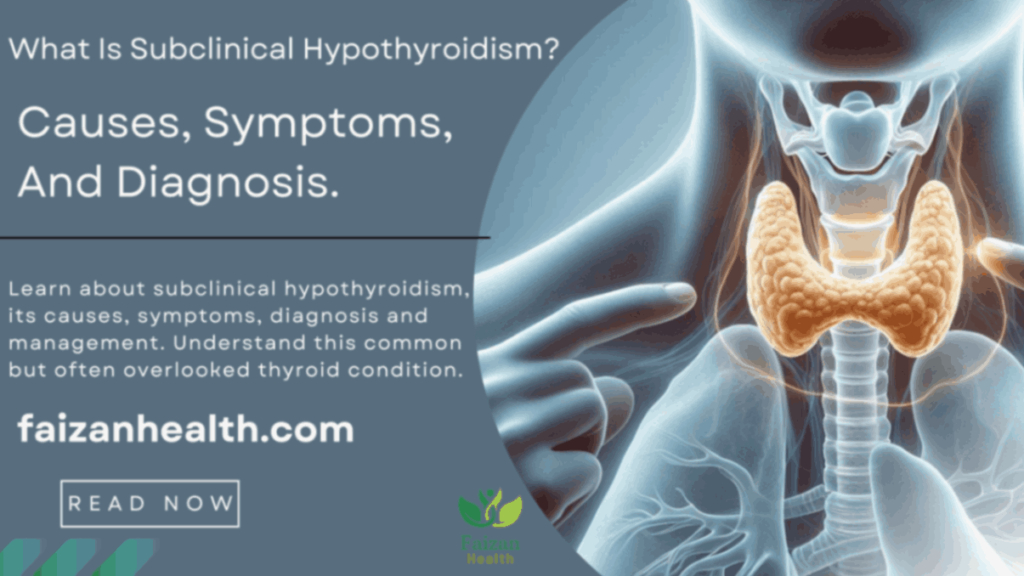High blood pressure, commonly referred to as high blood pressure, is a condition that affects millions of people worldwide. This can put extra stress on the heart and blood vessels, which can lead to serious health problems if not managed properly. Dehydration, on the other hand, occurs when your body loses too much fluid, causing symptoms like fatigue, dizziness, and confusion. Although these two conditions may seem unrelated at first, they can actually be linked in surprising ways. This article explores how high blood pressure can contribute to dehydration and what you can do to stay healthy if you’re dealing with high blood pressure.
Physiology of hypertension:
How Hypertension Affects the Body?
Hypertension , or high blood pressure, occurs when the force of the blood against the walls of your arteries is consistently too high. Over time, this constant pressure can damage the arteries, making them less flexible and more prone to narrowing. This can reduce the flow of oxygen-rich blood to vital organs such as the heart, brain and kidneys, increasing the risk of heart attack, stroke and kidney disease. Stress on the heart also means it has to work harder to pump blood, which can eventually weaken the heart muscle.
Blood Volume and Pressure Relationship:
Hypertension is closely related to the amount of blood in your body. When your body holds too much fluid, blood volume increases, which increases blood pressure. Conversely, when fluid levels are low, as in dehydration, blood volume decreases, and your blood pressure may drop. However, the body tries to maintain a stable blood pressure even as fluid levels change, which can sometimes result in a complex interaction between blood volume and pressure.
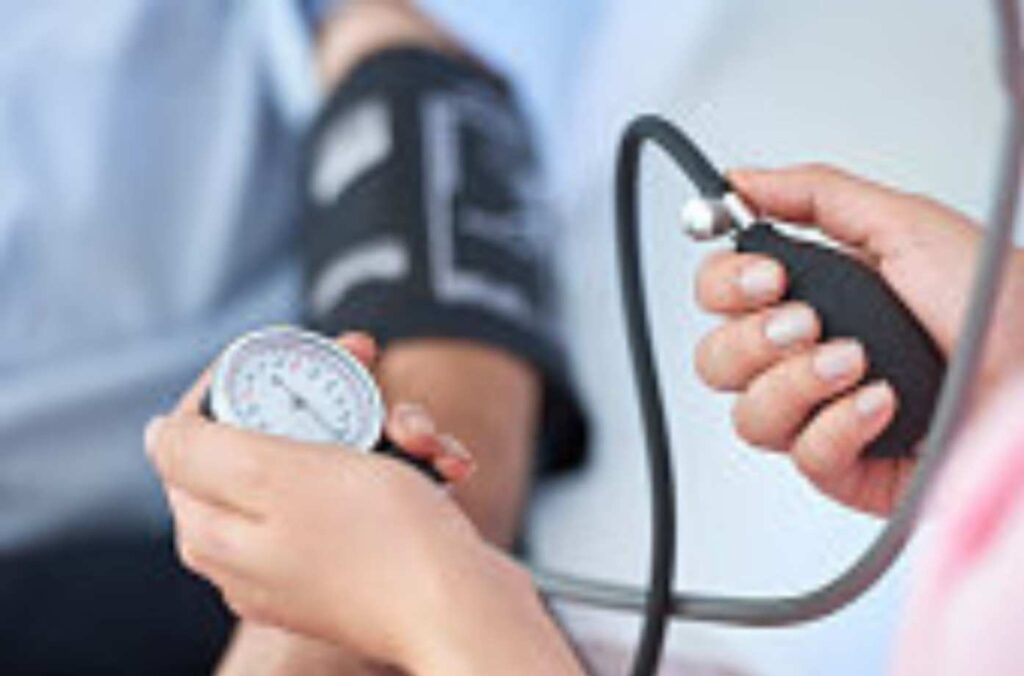
Medicines for High blood Pressure:
Many people with high blood pressure take medications to control their blood pressure. These drugs work in different ways, such as by relaxing the blood vessels, reducing the amount of water and salt in the body, or slowing the heart rate. Although these treatments are effective, some, especially diuretics (often called water pills), can increase the amount of urine in your body. This can lead to the loss of fluids and electrolytes, which can lead to dehydration if not managed properly.
Other common medications, such as ACE inhibitors and beta-blockers, also have effects on the body that can affect hydration levels, making it important to monitor how your body reacts to taking them.
Understanding Dehydration:
Causes of Dehydration:
Dehydration occurs when your body loses more fluid than it can, which can affect the way your body works. Common causes of dehydration include not drinking enough water, especially in hot weather or after exercise. Illnesses such as diarrhea, vomiting, or fever can also cause significant fluid loss. Even everyday activities like sweating, urinating, and breathing can dehydrate you, making it necessary to fill your fluids regularly.
Symptoms of Dehydration:
Recognizing the signs of dehydration is critical to maintaining good health. Early symptoms include increased thirst, dry mouth, and dark urine. As dehydration increases, you may experience dizziness, fatigue, and confusion. In severe cases, dehydration can lead to more serious symptoms such as rapid heartbeat, low blood pressure, and even fainting. These symptoms can be especially dangerous if you have underlying health conditions such as high blood pressure.

Risks of Chronic Dehydration:
While occasional dehydration can be easily corrected, chronic dehydration — where your body is constantly lacking enough fluids — can have long-term effects on your health. This can lead to problems like kidney stones, urinary tract infections, and even kidney damage. Chronic dehydration can also make it harder for your heart to pump blood, which can worsen conditions like high blood pressure. Over time, this can put extra strain on your heart and other organs, increasing the risk of serious health complications.
How Hypertension May Contribute to Dehydration?
Medications and Diuretics:
A major way Hypertension can cause dehydration is the use of certain medications, especially diuretics. Diuretics help lower blood pressure by removing excess sodium and water from the body. While effective, this process increases urination, which can result in fluid loss. If you don’t drink enough water to compensate, you can become dehydrated.
Increased Urination and fluid Loss:
High blood pressure itself, combined with medications, can cause more frequent urination. Every time you urinate, your body loses water and important electrolytes. This can add up quickly, especially if you’re already losing fluids from other sources such as sweating or illness. Without enough fluid to replace what is lost, dehydration becomes a real threat.
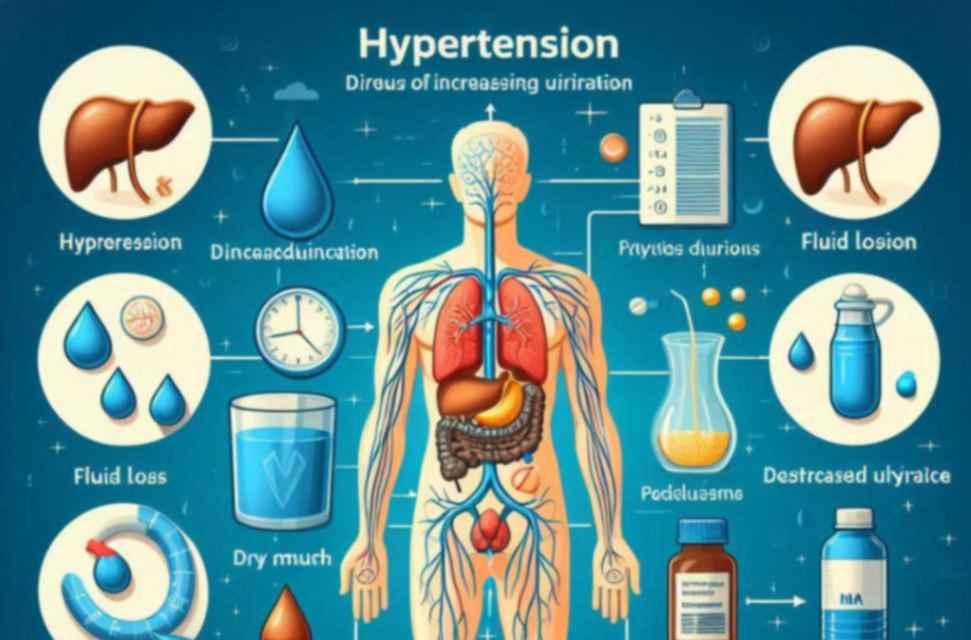
Effect on Kidney Function:
High blood pressure can also affect the way your kidneys work. The kidneys play a key role in maintaining fluid balance, but high blood pressure can damage the blood vessels in these organs. When this happens, the kidneys can struggle to retain the fluids your body needs, leading to dehydration. As dehydration increases, it can put more stress on the kidneys, creating a difficult cycle to break.
Cycle of Dehydration and Hypertension:
The combination of increased urination and kidney stress can create a cycle where dehydration and high blood pressure feed into each other. As dehydration increases, your blood pressure may fluctuate, making both conditions difficult to manage. Staying hydrated is critical to breaking this cycle and maintaining overall health.
Managing high blood pressure without risking dehydration:
Balanced fluid volume:
To effectively control high blood pressure, aim to drink plenty of water throughout the day to avoid dehydration. A good goal is to drink at least 8 glasses of water per day. Adjust this amount based on your activity level and environmental conditions. Adding water-rich foods like fruits and vegetables to your diet can also help keep you hydrated.
Monitoring of Medication side Effects:
If you are taking high blood pressure medications, especially diuretics, watch for signs of dehydration. Increased urination is a common side effect. Track how often you urinate and be alert for any signs of dehydration, such as dry mouth or dark urine. If you notice these symptoms, consult your doctor. They may need to adjust your medication.
Consult with Health care Providers:
Regular consultation with your health care provider is very important. They can help you find the right balance between managing your blood pressure and staying hydrated. Your doctor can also advise on appropriate fluid intake and adjust your treatment plan if necessary.
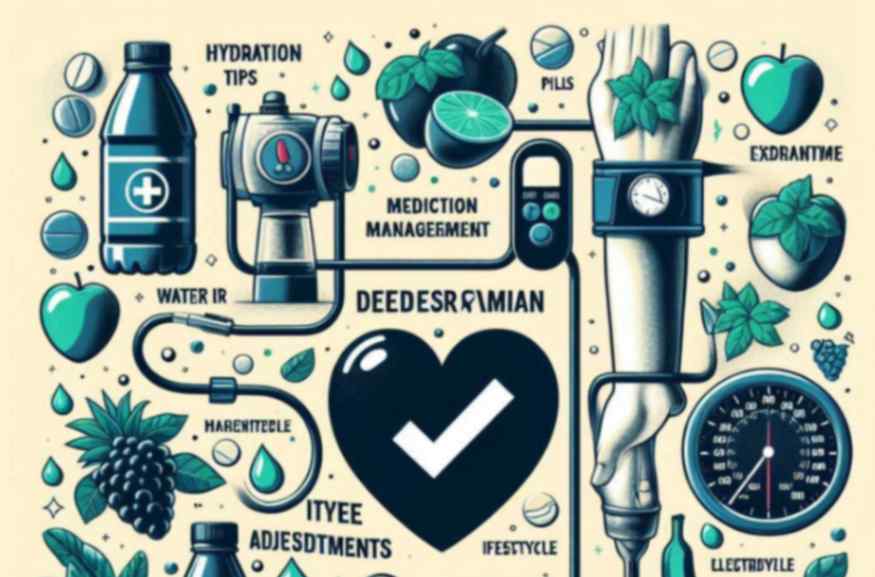
Lifestyle Adjustments:
Include healthy lifestyle changes for hydration and blood pressure control. Exercise regularly but drink water before, during and after exercise. Reduce salt intake to lower blood pressure and stress on your body’s fluid balance. These adjustments can contribute to better overall health and effective management of high blood pressure.
Read More About 5 Best Tips For Pulmonary Hypertension self-care.
Conclusion:
Managing high blood pressure while avoiding dehydration is important for overall health. By staying hydrated, monitoring medication side effects, and maintaining electrolyte balance, you can better control your blood pressure and prevent dehydration. Regular checkups with your healthcare provider and making smart lifestyle choices will help you effectively navigate this balance. Prioritizing both hydration and high blood pressure management is key to a healthy life.
FAQs:
Can high blood pressure directly cause dehydration?
High blood pressure itself does not directly cause dehydration, but medications for high blood pressure, especially diuretics, can increase fluid loss. This can lead to dehydration if fluids are not replenished properly.
How can I prevent dehydration while taking high blood pressure medication?
To prevent dehydration, drink plenty of water, monitor your fluid intake, and include electrolyte-rich foods in your diet. Check in with your doctor regularly to adjust your medication and maintain adequate hydration.


